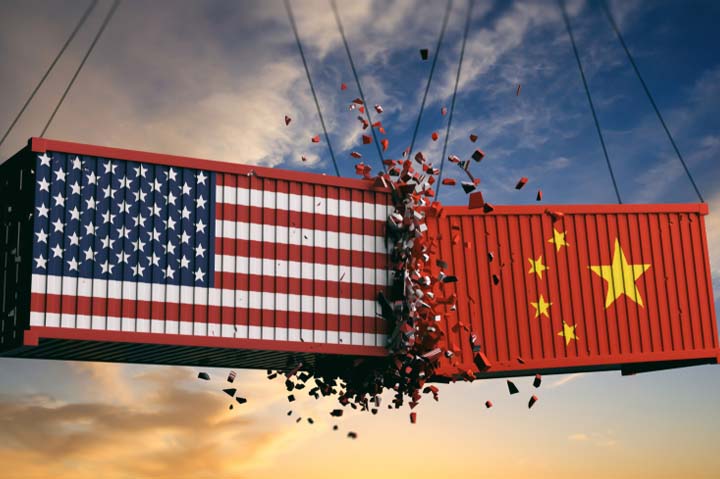August 06, 2021
Business Groups Call for Cut of China Tariffs
The tariffs have contributed to rising product prices and supply chain disruption in the promotional products industry.
Please, cut the tariffs on imports from China.
That’s the message about three dozen prominent and powerful business groups sent to President Joe Biden’s administration in a letter that also called for a resumption of trade talks with the country from which the U.S. imports hundreds of billions of goods annually.

The Wall Street Journal reported that trade groups that include the U.S. Chamber of Commerce, the Business Roundtable, the National Retail Federation, the American Farm Bureau Federation and the Semiconductor Industry Association sent the letter to U.S. Trade Representative Katherine Tai and Treasury Secretary Janet Yellen amid what the media outlet described as “increasing frustration” among American corporations with the administration’s review of the U.S.’s China trade and economic policy.
The industry groups contended that the tariffs have been a millstone on the American economy, holding back growth and saddling businesses with greater cost burdens that are ultimately born by everyday Americans.
“Due to the tariffs, U.S. industries face increased costs to manufacture products and provide services domestically, making their exports of these products and services less competitive abroad,” the letter said.
BREAKING: A coalition of influential U.S. business groups are calling on the Biden administration to resume trade talks with China and drop tariffs on Chinese imports. The group’s letter reflects growing frustration at the pace of Biden’s China review. https://t.co/Cnd1LN47kr
— bob davis (@bobdavis187) August 6, 2021
The letter also read: “A worker-centered trade agenda should account for the costs that U.S. and Chinese tariffs impose on Americans here and at home and remove tariffs that harm U.S. interests.” The mention of workers is a direct reference to the Biden administration’s stated aim of improving the lives of workers.
There was no immediate word from the Biden administration in response to the letter. The administration’s review of China policy, which could continue until some time in the autumn, includes an examination of the so-called “Phase One” trade deal that former President Donald J. Trump’s administration agreed to with China in January 2020.
#Promoproducts companies are expanding their international sourcing. Yes, China still is dominant. But burned by recent events, companies are increasingly looking elsewhere. https://t.co/BsvZAv0rwy
— Chris Ruvo (@ChrisR_ASI) August 6, 2021
The deal essentially locked in place import tariffs on roughly $360 billion in Chinese imports that Trump’s administration had imposed. It also placed a number of commitments on China, including requiring that the nation purchase $200 billion worth of American goods and services in 2020 and 2021. According to analysis by the Peterson Institute for International Economics, China fell short of those purchases by 40% last year and is off by 30% this year, The New York Times reported.
While acknowledging “there is more work to be done … to ensure that China meets its existing purchase agreements,” the business groups in their letter said the trade partner had made progress on some of its responsibilities under the Phase One Deal, including opening markets to American financial institutions and removing certain roadblocks that U.S. agricultural producers faced in trying to export to China.
“We also recognize that fully resolving tariffs is unlikely, absent substantially more progress by China on core issues,” acknowledged the industry groups, which urged for negotiations to begin on other issues that weren’t included in the Phase One trade deal, such as state subsidies, government procurements, cybersecurity and digital trade.
According to data from the U.S. Census, imports from China peaked at $538.51 billion in 2018. The figure dropped to $450.76 billion in 2019, then fell further amid COVID-impacted 2020 to $434.75 billion.
The majority of products sold in the $20.7 billion North American promotional products industry are produced in China. Tariffs on promo imports, which include both apparel and hard good items, contributed to price increases in recent years. It also intensified moves by suppliers (and distributors that import direct) to alter their supply chains so that they source more goods from countries outside China. Driven by ongoing trade uncertainty and other factors like COVID-19, promo’s international sourcing diversification has continued.
